Fritextsökning
Artiklar per år
Innehållstyper
-

“You discover one thing – and then 10 new questions arise”
COVID-19, diabetes, heart disease, and the impact of dog ownership on humans are just some of multitasker Tove Fall’s areas of research. However, her current focus is on her next field: the role of gut flora in human health.
-

The first drugs to slow down Alzheimer’s – but what does it mean for patients?
New treatments for early Alzheimer’s are bringing hope to thousands of patients and their families. The question is, who will get the treatment, how will the right patients be found in time, and will the healthcare system’s resources be sufficient? Life
-

Astra Zeneca’s Sweden CEO: “We have great faith in our portfolio”
It all started with a summer job as an operator at Astra’s chemical factory in Snäckviken, just outside Södertälje. More than three decades and countless different assignments later, Per Alfredsson, born and raised in Södertälje, is CEO of Astra Zeneca Sweden, which employs 7800 people in Södertälje, Stockholm and Gothenburg. “It was a very special feeling to be in charge of the entire organisation,” he says in an interview about his career and potential future blockbusters.
-

19 medicines in Sweden are under investigation in a major EMA inquiry
19 medicines marketed in Sweden are affected by an ongoing extensive European investigation into suspected fraud at an Indian contract research organisation. Among them are medicines for HIV, epilepsy, cancer and Parkinson’s, which may be withdrawn unless new evidence can be provided that they are up to standard.
-
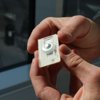
From the sea of Åland to a self-test for lithium
Four years ago, a meeting on the sea of Åland resulted in the development of a self-test for lithium levels in the blood. The hopes are that the test will be available for individuals with bipolar disorder in the future.
-

Heidi Stensmyren is eager for new challenges in the biotech industry
management roles,” she says.
-

Why the world renown researcher Marc Tessier-Lavigne resigns as Stanford´s president
In mid-summer, neuroscientist Marc Tessier-Lavigne announced his resignation as President of Stanford following allegations of manipulated study data. According to the reporter Theo Baker, who first reported the story, Tessier-Lavigne “rewarded the winners and punished the losers”. Here is the background of the story which has shaken the American scientific community over the summer.
-

Förlikning i babypuderskandal stoppas av domstol
Det amerikanska läkemedelsbolaget Johnson & Johnson har för en andra gång fått avslag av en domare om en konkursansökan för dotterbolaget LTL Management, mest känt som enheten bakom det omtalade babypudret som misstänkts ha orsakat cancer i en rad fall.
-

The Swedish Life Science Office: “We lost in both coordination and manpower”
Since the turn of the year, the Swedish government’s life science office has operated at a lower capacity. Life Science Sweden has spoken to Pontus Holm, Departmental Secretary at the office, about the ongoing work.
-
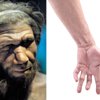
Neanderthal gene variants may cause Viking disease
A new study suggests that the so-called Viking disease, which affects the hand function in many older people, may be linked to gene variants inherited from Neanderthals.
-

Humana vann mot Ivo – får tillbaka tillståndet
Humana Assistans får fortsätta att bedriva personlig assistans och hemtjänst. Förvaltningsrätten upphävde på onsdagen Ivos beslut att dra in bolagets tillstånd.
-

Lucy Robertshaw: Artificial intelligence – is this really going to transform a patient’s life?
In a column Lucy Robertshaw reflects on how AI and new regulations will affect healthcare, innovation and the lives of future patients.
-

Anna Törner: The minute between life and death
. There is no forgiveness for something like this, even though it is very human to be distracted for a moment,” Anna Törner writes in a column.
-

Vicore tar in en halv miljard inför studie i lungfibros
Vicore Pharma tillförs en halv miljard kronor i en riktad nyemission. Syftet med kapitaltillskottet är att kunna fortsätta utvecklingen av bolagets behandlingar mot svåra lungsjukdomar.
-
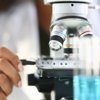
Så mycket tjänar ingenjörer inom life science
Ny lönestatistik från fackförbundet Sveriges Ingenjörer visar att ingenjörer inom life science hamnar på en nionde plats när medellönerna för ingenjörer inom olika branscher listas.
-

Genmutation som förhindrar smärta kartläggs av forskare
En mutation i en gen gör att en kvinna i Storbritannien upplever bara lite ångest och känner nästintill ingen smärta. Nu har forskarna upptäckt en pusselbit till vad det är som ligger bakom den molekylära mekanism som orsakar det ovanliga tillståndet.
-

Samuel Lagercrantz: The government’s performance in healthcare and life sciences so far
Since the change of government in Sweden, developments in the healthcare sector have shown promising signs, but the outlook in life sciences is less promising, writes Samuel Lagercrantz in an editorial.
-

Asgard, Aniara och Astra Zeneca: Så valde bolagen sina namn – del 2
Trojaner, litterära klassiker och bisarra konspirationsteorier – här kommer den sista artikeln i vår serie om företagsnamn inom life science.
-
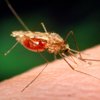
A new malaria vaccine offers hope but much more research is still needed
There has long been no vaccine against malaria, but there have been breakthroughs in recent years. However, it is still unclear how we become immune to the malaria parasite, and this is a vital piece of the puzzle for creating effective vaccines, says malaria researcher Kristina Persson.
-

Så kan life science-bolag locka investerare
Finns det något framgångsrecept för life science-bolag som vill få in kapital från investerare? Ja, faktiskt. Life Science Sweden talar med en av arrangörerna bakom branschdagen "Executive Insights".
-

Sov som en björn – och undvik blodproppar
Minskning av ett visst blodplättsprotein tycks ha en nyckelroll när det gäller att förhindra blodproppar, enligt forskning vid bland annat Universitetssjukhuset Örebro. Och för den nya kunskapen kan vi tacka en av naturens största sjusovare: björnen.
-
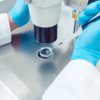
Stora framsteg i IVF-labb de senaste decennierna
Sedan introduktionen av provrörsbefruktning flera decennier sedan har flertalet tekniska framsteg gjorts inom området och den huvudsakliga utvecklingen har skett i labb.
-

Därför är det så svårt att hålla sig från snacksen
Okej alla gottegrisar, forskare vid Max Planck institutet och Yale påstår att om vi regelbundet mumsar i oss små mängder livsmedel med högt fett- och sockerinnehåll, så förändras våra hjärnor – hjärnan vill ha mer av det goda.
-

Major advances in IVF labs in the last few decades
Since the introduction of in vitro fertilisation several decades ago, many developments have been made in the field, and the main part of that development has taken place in the lab.